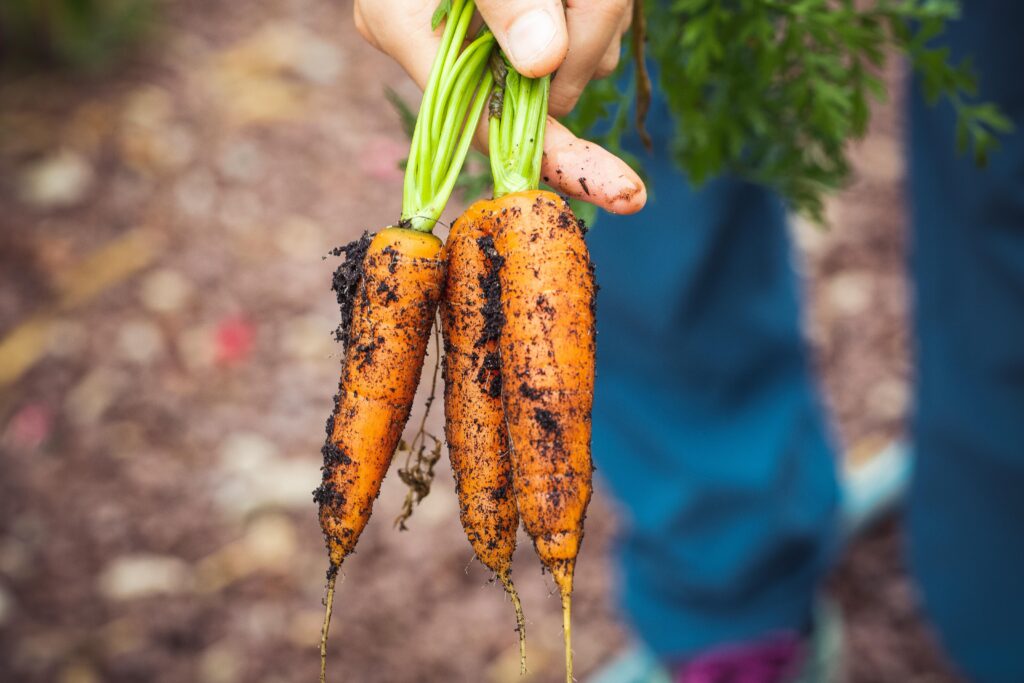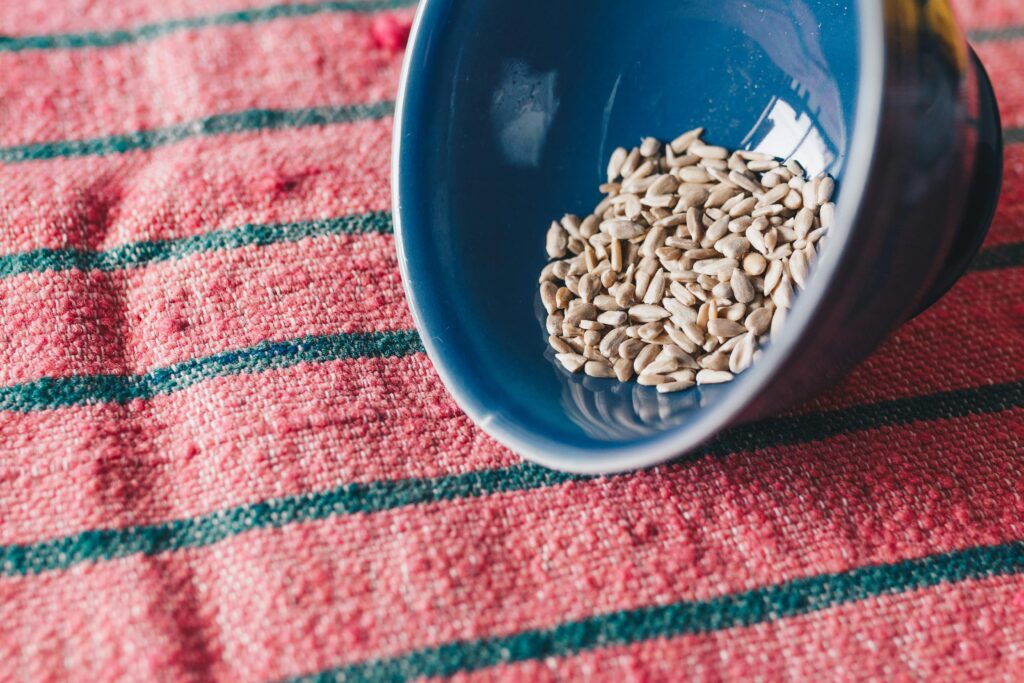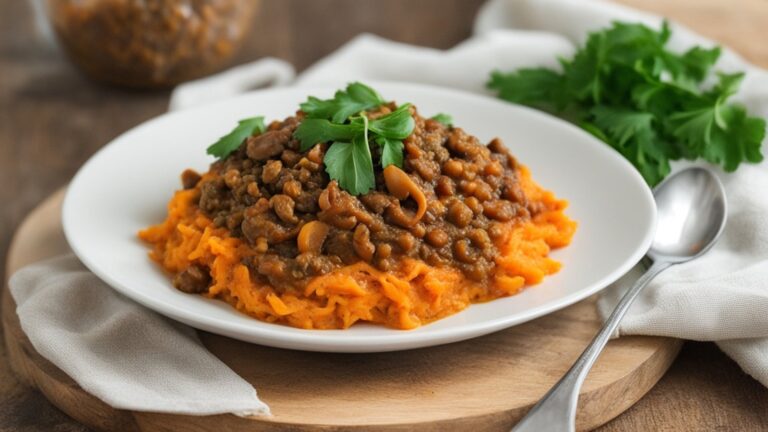Vegan For Flu Season – Protecting Your Immunity on a Plant-Based Diet
As flu season approaches, we all need to start thinking about our health a little more. A strong immune system is the best defense against seasonal illnesses and, guess what? What we eat matters.
Turns out, a vegan diet can be a serious ally to your immune system. A plant-based diet, rich in fruits, vegetables, legumes, and whole grains is packed with the essential nutrients that our immune system needs to function optimally.
In this guide, we’ll dive into the world of plant-based immunity boosters and learn how to eat for a healthier flu season.

Understanding Immunity and Plant-Based Nutrition
Our immune system is a complex network of cells, tissues, and organs that work together to defend our body against harmful invaders like viruses and bacteria. A well-functioning immune system is key to maintaining our health, especially during flu season.
But how does nutrition fit into this picture? The answer lies in the nutrients we get from our diet.
The Role of Nutrients in Immune Function
Nutrients play a vital role in supporting our immune system. They help our body produce white blood cells, which are crucial for fighting off infections.
Certain nutrients also have antioxidant properties that help protect our cells from damage and inflammation, which can weaken our immune response.
In short, a nutrient-rich diet is a cornerstone of a strong immune system.

Key Immune-Boosting Nutrients and Their Plant Sources
When it comes to immunity, some nutrients stand out.
Vitamins C, E, A, D, B6, B12, folate, iron, selenium, and zinc each play a unique role in supporting our immune function. Let’s talk a little bit about each and how you can incorporate them into your diet:
- Vitamin C is known for its immune-boosting properties. It helps stimulate the production of white blood cells and acts as a powerful antioxidant. You can get your vitamin C through citrus fruits, bell peppers, strawberries, leafy greens, and/or quality supplements.
- Vitamin E is a potent antioxidant that plays a crucial role in supporting a healthy immune system by helping to protect cells from oxidative stress and enhancing the body’s ability to fight off infections. Get your fill by eating plenty of nuts, seeds, and spinach.
- Vitamin A (Beta-carotene), found in plentiful amounts in carrots, sweet potatoes, and squash, is essential for a healthy immune system. It supports the function of white blood cells, which are vital for fighting off infections and maintaining overall immune health.
- Vitamin D is critical for a healthy immune system as it enhances the pathogen-fighting effects of monocytes and macrophages—white blood cells that are essential for immune defense. You can find vitamin D in fortified plant milks, mushrooms exposed to sunlight, and supplements.
- B vitamins (B6 and B12 in particular) play a key role in energy production, support the formation of red blood cells, and help maintain the overall function of immune responses through various metabolic processes. Vitamin B is abundant in many whole grains, legumes, nuts, and seeds.
- Folate aids in the production and maturation of white blood cells, which are essential for an effective immune response and overall health. Vegan foods rich in folate include lentils, chickpeas, black-eyed peas, leafy green vegetables, asparagus, Brussels sprouts, avocados, and fortified cereals.
- Iron, found in lentils, chickpeas, tofu, and quinoa, helps in the production of hemoglobin, which carries oxygen to cells, and is crucial for the proliferation and maturation of immune cells, thereby enhancing the body’s ability to combat infections.
- Selenium is a vital trace mineral that supports a healthy immune system by promoting the production of antioxidant enzymes and enhancing the body’s ability to fight off infections and reduce inflammation. It can be found in Brazil nuts, sunflower seeds, and whole wheat bread.
- Zinc, abundant in pumpkin seeds, lentils, and chickpeas, plays a significant role in the development and function of immune cells, helping to enhance the body’s ability to respond to infections and maintain optimal immune health. Get your fill by eating plenty of lentils, chickpeas, quinoa, pumpkin seeds.
By incorporating these foods into our diet, you can help your immune system function at its best. Please not that the list of plant-foods noted under each of these vital nutrients is not complete. A plant based diet is loaded with abundant immunity boosting food sources. We will get into that more below.
Top Plant-Based Immunity Foods to Include in Your Diet
We already touched on some of our favorite immune-boosting plant foods, but let’s dive a little deeper. A well-rounded vegan diet is heavy in fruits, vegetables, nuts, seeds, legumes, and whole grains. Each of these food groups offers a unique set of nutrients that support our immune system. Time to take a closer look at each.

Fruits and Vegetables
Fruits and vegetables are packed with a wide array of vitamins, minerals, and antioxidants that support the immune system’s function. For instance, citrus fruits are high in vitamin C, known for its immune-boosting properties, while leafy greens like spinach and kale offer vitamins A, C, and E, which are crucial for maintaining a robust immune response.
Fruits and vegetables also contribute to overall health by providing dietary fiber, which promotes gut health, an integral aspect of the immune system. A healthy gut microbiome can enhance the body’s immune response.
Incorporating a colorful variety of fruits and vegetables into your meals not only nourishes your body but also helps ensure that you receive a comprehensive spectrum of nutrients necessary for optimal immune function.

Nuts, Seeds, and Legumes
Nuts, seeds, and legumes are integral components of a vegan diet that play a crucial role in boosting immunity. These food groups are rich in essential nutrients, including vitamins, minerals, healthy fats, and protein, all of which contribute to a well-functioning immune system. Let’s talk about each:
- Nuts, such as almonds and walnuts, are packed with antioxidants, healthy fats, and vitamin E, which help protect the body from oxidative stress and enhance immune responses. They also provide a source of energy and support overall health.
- Seeds (pumpkin seeds, sunflower seeds, and chia seeds, etc) are excellent sources of zinc, which is vital for the development and function of immune cells. They also offer omega-3 fatty acids, which possess anti-inflammatory properties that can help regulate immune function.
- Legumes, such as lentils, chickpeas, and black beans, are rich in protein, fiber, and essential nutrients like iron and folate. These nutrients support the production and maturation of white blood cells, which are crucial for an effective immune response.
Together, nuts, seeds, and legumes provide a powerhouse of immune-boosting benefits, making them essential for maintaining optimal health in a vegan lifestyle.
Herbs and Spices
Herbs and spices are not just for adding flavor to our meals; they also offer a variety of health benefits, including significant immune support. Shall we talk about a few of our faves?
- Garlic is known for its ability to boost the immune system due to its antiviral and antibacterial properties, which can help the body fend off infections.
- Turmeric, with its active compound curcumin, possesses powerful anti-inflammatory and antioxidant effects that may support immune function and help reduce the risk of chronic diseases.
- Ginger is recognized for its immune-boosting capabilities, as it can help reduce inflammation and may have antimicrobial properties.
Other herbs and spices such as oregano, cayenne pepper, and cinnamon contribute valuable antioxidants that further enhance the body’s ability to combat illness.
Incorporating the right herbs and spices into your diet not only elevates the taste of your meals but also supports overall health by reinforcing the immune system.
Practical Tips for Incorporating Immunity Boosters into Your Vegan Diet
Incorporating immunity-boosting foods into your diet doesn’t have to be complicated. With a little planning and creativity, you can easily include these nutrient-rich foods in your daily meals.
Here are some practical tips to help you get started:
- Start your day with a smoothie packed with fruits, vegetables, and a handful of nuts or seeds.
- Include a variety of colorful vegetables in your meals to ensure a wide range of nutrients.
- Snack on fruits, nuts, and seeds instead of processed snacks.
- Use herbs and spices liberally in your cooking to add flavor and health benefits.
- Opt for whole grains over refined grains to get more nutrients and fiber.

Meal Planning and Preparation Strategies
Meal planning and preparation can be a game-changer when it comes to incorporating immunity boosters into your diet. By planning your meals in advance, you can ensure that you’re getting a variety of nutrients throughout the week.
Batch cooking and meal prepping can also save you time and make it easier to eat healthy. For instance, you can cook a big batch of quinoa or lentils at the beginning of the week and use them in different meals throughout the week.
Creative Cooking and Recipe Resources
Getting creative in the kitchen can make your plant-based journey more enjoyable and sustainable. Try new recipes, experiment with different spices, and find ways to incorporate more fruits, vegetables, nuts, seeds, and legumes into your meals.
There are plenty of online resources and cookbooks available that offer delicious and nutritious plant-based recipes.
Overcoming Challenges: A Note on Protein, B12, and Omega-3s
One of the common concerns when switching to a plant-based diet is getting enough protein, B12, and Omega-3s, all essential nutrients for our immune system and general well-being. Contrary to what some believe, it IS possible to get all these nutrients from plant sources. You just need to plan a little more carefully.
When it comes to protein, focus on including a variety of legumes, nuts, seeds, and whole grains in your diet. For B12 and Omega-3s, consider fortified foods or supplements, and always consult with a healthcare professional before starting any new supplement regimen. Interested in learning more? Have a look at our post titled “How to Maintain a Balanced Vegan Diet“.
To Conclude
Adopting a vegan diet offers a wealth of benefits for boosting immunity, particularly when it focuses on a variety of nutrient-dense foods. By incorporating an abundance of fruits, vegetables, nuts, seeds, and legumes, and by using the right herbs and spices you can get your body everything it needs to defend itself.
As flu season approaches, embracing the power of plant-based foods can be a delicious and effective way to protect your health. With thoughtful planning and creativity in the kitchen, you can enjoy a balanced vegan lifestyle that nourishes your body and helps safeguard your immune system against seasonal illnesses.
Related Reads
- How to Stock a Vegan Pantry
- How to Maintain a Balanced Vegan Diet
- The Health Benefits of a Vegan Diet
Teddy Danielson




Leave a Reply